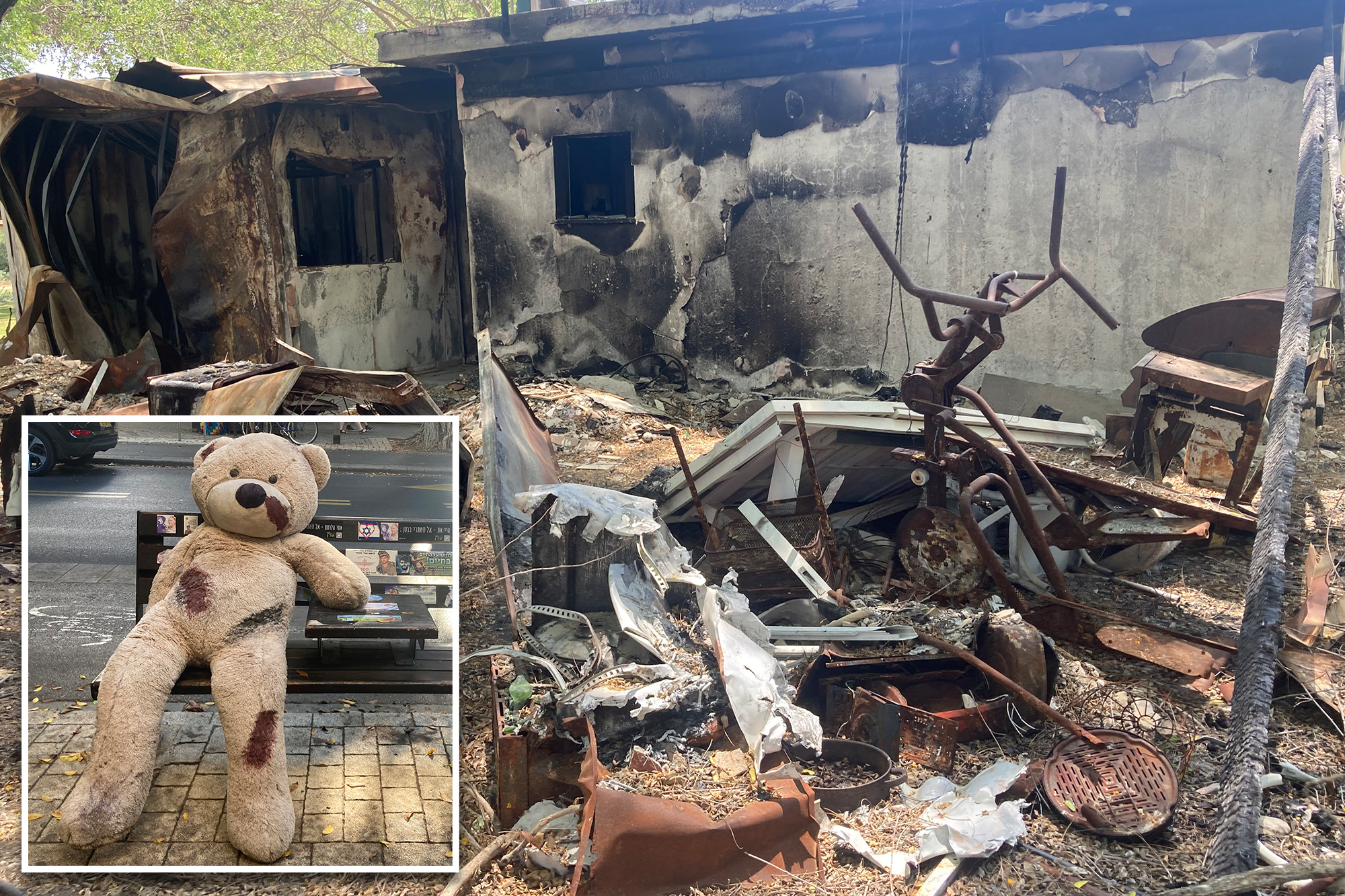The tranquil and idyllic Nir Oz Kibbutz, nestled near the Gaza border in Israel, has been left in ruins following a heinous terrorist attack. On October 7, an estimated 700 terrorists, including members of Hamas Nukhba forces, launched a brutal assault on the kibbutz, resulting in the death or abduction of 117 residents and the destruction of 60% of the homes.
The aftermath of the attack is a haunting scene of devastation and despair. The air hangs heavy with the acrid smell of death and destruction, reminiscent of the aftermath of the 9/11 attacks in New York City. In a grim turn of events, the kibbutz has opened its doors to visitors, allowing them to witness the harrowing aftermath firsthand, in a new form of “terror tourism.” Visitors can navigate through charred homes, walk on shards of broken glass, and witness the remnants of once vibrant lives, such as burnt eggs in refrigerators and toddler-sized fairy princess dresses in a laundry basket.
Irit Lahav, a 57-year-old jewelry designer and resident of the kibbutz, guides journalists through the intimate spaces of people’s homes, recounting her own miraculous survival alongside her adult daughter. For eight agonizing hours, they endured a relentless attempt by terrorists to break into their home before help finally arrived. Lahav’s poignant words capture the tragedy that has befallen the community: “The paradise we called home turned into hell on earth in just a few hours.”
The Bibas family, including 4-year-old Ariel and 9-month-old Kfir, were among those taken hostage during the attack. Kfir, the youngest Israeli held captive, recently marked the grim milestone of having spent more of his life as a hostage than as a free child. The Siman Tov family, with their three young children Shahar, Arbel, and Omer, tragically perished in a blaze ignited by the terrorists. Their destroyed home stands as a stark reminder of the swiftness with which lives were shattered.
Hamas militants also systematically set fire to all 250 cars in the kibbutz, effectively trapping residents who were not immediately killed or abducted. While it is estimated that the kibbutz will take three years to rebuild, many survivors have no intention of returning to the site of such unimaginable pain. Instead, they have sought temporary housing in Kiryat Gat, an hour away.
The survivors not only lost their homes and loved ones but also their personal belongings, which were either looted or forever tainted by the horrors they witnessed. Lahav, who had dedicated years to peace efforts and humanitarian work with Gazan civilians, now feels a deep sense of betrayal. She no longer believes in the existence of “good, innocent” Palestinians who desire peace. The discovery of rapes and mutilated bodies has shattered her previous beliefs, leading her to conclude that Palestinians, including women, teenagers, and children, were among those who attacked and robbed them.
The emotional toll on the survivors is immeasurable. The simple question of “How are you?” has become too painful to bear, as it serves as a reminder of the immense loss they have endured. Yet, amidst the darkness, Lahav and others strive to preserve their humanity. Lahav, despite her own personal losses, expresses her willingness to continue providing medical treatment to Palestinians, even if it means helping those who have stolen from her. “I want to keep my goodness,” she says.
The attack on Nir Oz Kibbutz was not merely an act driven by political aspirations but a ruthless display of violence and destruction. It is a stark reminder that the perpetrators were not solely Hamas fighters but Palestinians who launched a relentless assault on the peaceful community. The survivors grapple with a sense of survivor’s guilt, knowing they are fortunate to be alive while their attackers remain across the border.

